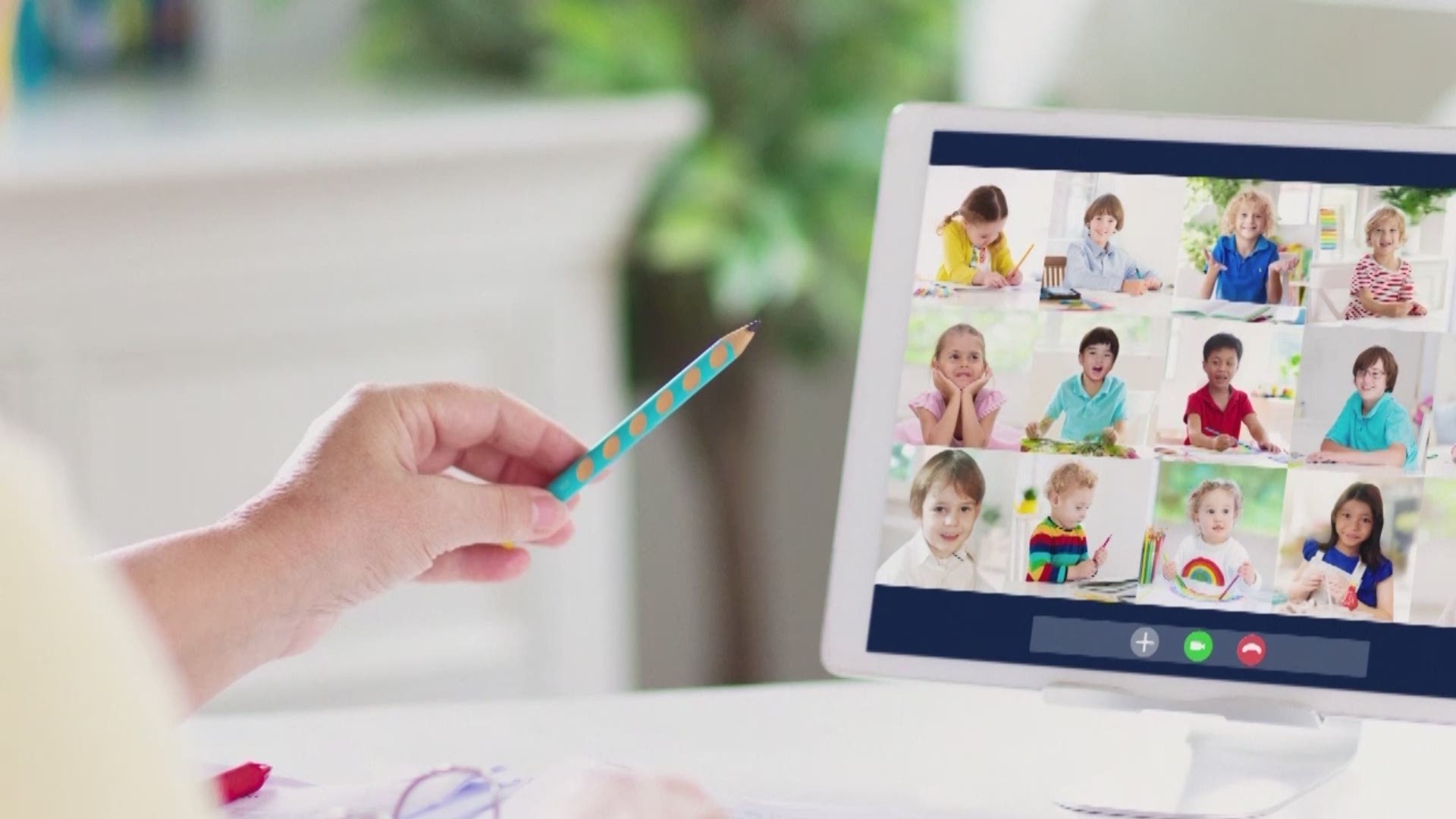SAN ANTONIO — In 2020, parents are facing a back to school season unlike any other in recent history. In an effort to provide a variety of different perspectives, we are sharing interviews with families across the San Antonio area who are faced with a tough decision. The coronavirus pandemic forced schools to shut down in March – and as school districts prepare to start back up this fall, families are being asked to choose: distance or in-person learning. The decision isn’t easy for everyone – that’s why KENS 5 is trying to shed some light on how different families are making their decisions.
Joyce Turner, a mother of two children, is a nurse practitioner. Her son attended Southwest Preparatory in San Antonio up until March.
"My son is in high school and I'm very concerned about sending him back to brick and mortar," Turner said. "My plans are for him to go to a virtual environment in a school that's already a virtual school. And my rationale is that the hospitalizations have increased and deaths have increased. And I think that the brick and mortar school is an opportunity for the spread of the condition."
Turner said she isn't considering input from her children about whether to return to in-person instruction because she believes schools in general don't get enough financial support to implement the CDC's guidelines.
"I am not considering input from my children because schools are underfunded. And the population of the school makes it virtually impossible to social distance correctly - so one desk apart is not six feet," Turner said. "It's also not practical to me for all students to consistently wear a mask... You have teachers that are older and that puts them at risk. And then people go home and that puts everyone at risk. So, no, I don't feel that it's a child's decision."
When asked how Turner would grade the response of schools shutting down back in March, she said:
"I think some schools did better than others. I do not think some schools were prepared for the virtual environment. And I don't feel like they necessarily used all of their resources... I believe that the schools should lean on each other for resources to make sure that our kids get what they need. Another thing I believe that the schools need to consider that some parents work. And for example, if a child was in elementary school, they may they may not have been able to meet the requirements of logging on as often as possible. But if they relied on their resources, the virtual schools are based on task completion - and not so much if you are logged on at a certain time or a certain number of hours."
Turner said families making a decision about school should be reminded that there is no perfect solution.
"I think that each parent will have to make a decision based on your comfort level. There is no right answer. Some parents have to work and they don't have any other resources except to send their children to school, especially with the younger children. However, I do think that you need to consider, if it's practical, to send your child to school. If you have people where they have illnesses. Are you okay with taking the risk of getting the virus?" she said. "I think that that's very important. But do not let others judge you... It's a scary situation."
She also spoke about the different types of homeschooling options available to students.
"There's home schooling where you make up the curriculum," she pointed out. "The other option is school at home, which would be the virtual charter school."
Turner said she worries about families who have children with special needs who have extra considerations to weigh.
"If you have a special needs child that requires certain therapies, how do you manage making sure that they receive services?"
The safety of teachers and the added stress they will face is another factor Turner said requires more attention:
"I feel that teachers have a lot already on their plate. The medical professionals don't have a good handle on the virus. I believe it's unfair to add another responsibility to the teacher's plate. I believe that the teachers are just as important as our medical personnel. We all serve people, but we serve people in a different light - and I think that we should stay in our respective lanes. Teachers are not medical professionals and medical professionals are not teachers. So we really need to consider that and not put undue pressure on our teachers."
Turner pointed out a possible scenario that she fears the most. She wonders what will happen if someone dies from the virus - and she is concerned about the toll that will have on the mental health of everyone.
"I also think that our government needs to consider if a child dies as a result of going to school or if a teacher dies as a result of going to school. How traumatic would that be to the students? And will the students recover? So we have a lot to think about. But I think that our children's mental health, the mental health of the teachers and the mental health of our communities should be a priority."
See the full interview with Joyce below:
We spoke with another local mother in part one of our "Parenting during a Pandemic" series who says the best place for her son is inside the classroom, despite the risks. Click here for that story.

